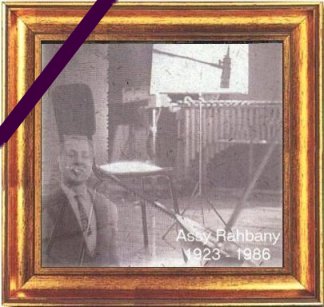|
Related Articles: Check the miscellaneous part in the articles section.
From To Assy Album :
"By words, You chose simplicity. By music, you chose simplicity. By simplicity you went into the homes of the people. You wrote history and left."
Fairuz.
"I am not speaking about this huge legacy, in fear that I start talking about myself. For writing now, is about him and Ziad's dedication is to his father. I stand to witness the two geniuses, that one which became a glowing past and this one that linked him with a lit future.
Assy. Despite his thorough music education, his inspiration came from himself and his people. He wandered in obscurity and in his interests in the truth. Art for him came from consciousness and hard work and knowledge came from remembrance. He found rest from his usual worry in writing music/poems or in discussion groups, to forget, at least temporarily, that wary rising internal sound, where to?
He was very close to his son Ziad who in this gesture to his father adds new things to what changed music in this Orient"
Mansour Rahbani 1/21/1995
"Today as I am arranging the Rahbani music, I realize that 'Nihna Wel Kamar Jiran' song does not have Tabla percussion, and despite that, it's popular. There were not similar songs in our culture before and so they fought it then as being westernized. It became from the most important songs in our Arabic culture. It can also be sung in any foreign language. It's international, simple, oriental and popular/folkloric. If someone wants to dance 'dabka' and claps his hands, there is a song that's called 'Shatti Ya Dinii' and with the same qualifications. Assy composed on the piano like the Bisq not the Oud. "Bisq is for the people, Oud is for the palace".
These simple basic tones remain to hassle me, ring inside my head, and tell me: Play with me using other instruments, no matter how you feel, I'll remain myself. As if she is a woman that fits with all fashion fads. And so I wanted, after Assy was rewarded many times with speeches as if he was Caesar or Romel, to bring back some of the old Rahbina and their important songs, to transfer them to a generation that doesn't know it.
Since these songs were collected for remembrance, I did not accept anything for all my efforts since 1988 so that it's really a reward."
Ziad
|
